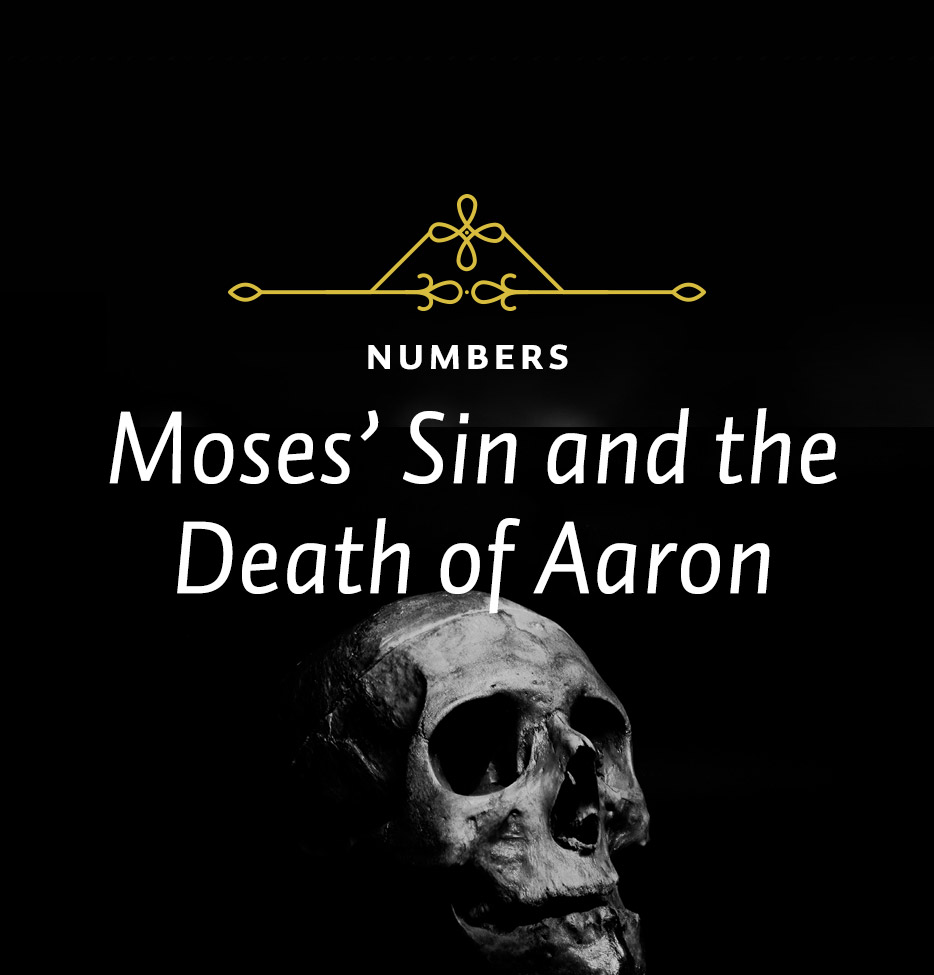The Old Testament book of Obadiah, one of the Minor Prophets, is a prophecy entirely against Edom. It condemns Edom for its pride. The people of Edom sat up in their strongholds, thinking that nobody would ever bring them down. But they were eventually destroyed. Today the land is utterly uninhabited, a barren area where jackals roam. Obadiah criticized the Edomites for not treating their Hebrew brothers in a brotherly way. Such relationships were to be established and kept holy, but the Edomites didn’t do that.
Now we come to Aaron’s death, found at the very end of the chapter (vv. 22-29). His death is significant. We have seen how important Aaron is. When his position as the high priest is challenged by Korah and others who were associated with him, God judged them in one of the harshest judgments and in one of the most sudden manners you could possibly imagine. The earth literally opened up and swallowed them whole. Here, Aaron passes from the scene, and his garments are taken and placed upon his son Eleazar.
There’s an interesting phrase here that’s worth thinking about. It says that he was “gathered to his people.” This means more than that he had merely died. It’s an Old Testament expression of faith in the afterlife, equivalent to what David said when the son that was born to Bathsheba died: “I will go to him, but he will not return to me” (2 Sam. 12:23). Although they didn’t understand much about the afterlife (and you and I don’t understand a whole lot about it either), nevertheless they believed that when people died their souls still existed, and that the souls of these righteous joined the souls of their righteous ancestors. Now Aaron is being gathered to his people.
The death of Aaron in the wilderness was a judgment, as was also the death of Moses. Neither was able to enter the promised land. But it is interesting that, having died physically, that was the end of the judgment, so far as these redeemed, righteous people were concerned. Thus, when Aaron died, he was gathered to the saints before him. He is there in the presence of Abraham, Isaac, and Jacob, and all the saints. And when Moses died he was gathered to the saints as well. God is indeed gracious, and Moses is aware of that.
The account describes the transfer of power and authority from Aaron to his son Eleazar. It is done in a very formal way. They went up the mountain, and Moses took from Aaron the garments that symbolized the office of high priest and put them on Eleazar. This transfer shows the important role of the high priest, as the office passes from one man to another man.
This is significant because it points forward to that one man who alone could be the perfect High Priest, namely, Jesus Christ. When Christ fulfilled His priestly function, interceding for us by His death and continuing to do so by His prayers, the priesthood ceased for the people of God. We don’t need a human priest today to come into the presence of God, or to make intercession for us. Jesus Christ is that priest.
At the beginning of this study, I said that Numbers 20 gives us the background for Moses’ own reflection upon the events of this chapter in Psalm 90. Moses has lost his sister and his brother. He is the last of his family to survive, and is soon to face his own death. The only other ones left who came out of Egypt forty years before are Caleb and Joshua.
In Psalm 90, Moses is reflecting on that, and he begins by reflecting on the grandeur of God in verses 1 and 2: “Lord, you have been our dwelling place throughout all generations. Before the mountains were born or you brought forth the earth and the world, from everlasting to everlasting you are God.”
Moses was undoubtedly more aware than most of us that life is short and uncertain. He was also aware, undoubtedly more than most of us, of the greatness of God, because he had stood on the mountain with God face-to-face. He had conversed with God, and he knew the greatness of the God who had called His people to Himself. Moses tells us that if we’re going to reflect on life and death with any wisdom, it has to begin with God, the eternal one.






